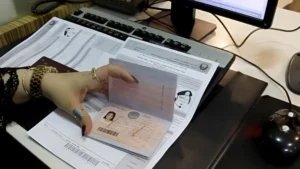Table of Contents
- Introduction
- Legal Framework for Domestic Workers in Dubai
- Understanding Domestic Workers Rights Dubai: Legal Framework
- Federal Decree-Law No. 9 of 2022
- Relationship to General UAE Labor Law
- Fundamental Rights of Domestic Workers
- Rights of Domestic Workers in Dubai: Essential Protections
- Working Hours and Rest Periods
- Healthcare and Accommodation Rights
- End of Service and Travel Benefits
- Employment Contracts and Terms
- Essential Elements of a Domestic Worker Contract UAE
- Mandatory Contract Requirements
- Contract Registration and Approval
- Contract Termination Rights
- Visa Requirements and Regulations
- Navigating Domestic Worker Visa Requirements Dubai
- Employer Eligibility Criteria
- Worker Eligibility and Documentation
- Visa Renewal and Transfer Procedures
- Wage Protection and Payment Systems
- Implementation of the Wage Protection System for Domestic Workers
- WPS Coverage and Requirements
- Wage Payment Regulations
- Minimum Wage Considerations
- Protection Against Abuse and Exploitation
- Legal Safeguards Against Abuse for Domestic Workers
- Types of Abuse Recognized Under Law
- Emergency Support Systems
- Anti-Trafficking Measures
- Enforcement and Compliance Mechanisms
- Reporting Violations and Seeking Redress
- Complaint Procedures
- Recent Enforcement Actions
- Dispute Resolution Process
- Challenges and Ongoing Issues
- Persistent Challenges in Domestic Worker Protection
- Enforcement Consistency
- Worker Vulnerabilities
- Recommendations for Improvement
- Resources and Support for Domestic Workers
- Available Support Systems and Information Resources
- Government Resources
- Non-Governmental Organizations
- Embassy and Consular Services
- Conclusion
- FAQs
Blog|14 May 2025
Domestic Workers Rights Dubai: A Comprehensive Guide to Legal Protections (2025)

Introduction
Domestic workers form the backbone of many households in Dubai, yet many remain unaware of their legal rights and protections. Whether you're a domestic worker seeking to understand your entitlements, an employer wanting to ensure compliance, or an advocate for labor rights, understanding domestic workers rights Dubai is essential for fostering fair and respectful working relationships. The UAE has made significant strides in recent years to enhance protections for this vital workforce. With the introduction of groundbreaking legislation like Federal Decree-Law No. 9 of 2022 and related ministerial decisions, domestic workers now enjoy more comprehensive legal safeguards than ever before. This guide explores the current legal landscape governing domestic workers in Dubai, detailing everything from basic working conditions and contractual requirements to protection mechanisms and enforcement procedures. By the end of this article, you'll have a clear understanding of the rights, responsibilities, and resources available to ensure domestic workers receive fair treatment under UAE law.Legal Framework for Domestic Workers in Dubai
Understanding Domestic Workers Rights Dubai: Legal Framework
The legal framework governing domestic workers rights Dubai has evolved significantly over the past decade, with several key pieces of legislation shaping the present-day regulatory environment.Federal Decree-Law No. 9 of 2022
This landmark legislation serves as the cornerstone of domestic worker protections in the UAE. It replaced the previous Federal Law No. 10 of 2017 and introduced several important provisions:- Mandatory wage payment within 10 working days of the due date
- Clear communication requirements regarding contract terms, job nature, wages, and time off arrangements
- Specific protections against forced labor and exploitation
- Detailed guidelines for recruitment agencies
Relationship to General UAE Labor Law
While domestic workers were previously excluded from the general UAE labor law, recent reforms have extended many protections to this sector. The specialized legislation for domestic workers now mirrors many of the protections found in the broader labor framework, though with adaptations specific to the household employment context.
Fundamental Rights of Domestic Workers
Rights of Domestic Workers in Dubai: Essential Protections
The rights of domestic workers in Dubai include several fundamental protections that employers must respect. These rights form the foundation of fair employment practices in the domestic work sector.Working Hours and Rest Periods
Domestic workers are entitled to:- -Minimum 12 hours of daily rest, with at least 8 consecutive hours
- One full day of rest each week
- Breaks during working hours
- 30 days of paid annual leave after completing one year of service
Healthcare and Accommodation Rights
Employers must provide:- Appropriate medical care during the employment period
- Suitable accommodation that meets health and safety standards
- Nutritious food
- Appropriate clothing for work duties (if required by the nature of work)
End of Service and Travel Benefits
After completing their contract, domestic workers are entitled to:- End-of-service benefits equivalent to one month's salary for each year of service
- A return ticket to their home country
- Any outstanding wages or benefits
Employment Contracts and Terms
Essential Elements of a Domestic Worker Contract UAE
A properly executed domestic worker contract UAE forms the legal foundation of the employment relationship. The Ministry of Human Resources and Emiratisation (MOHRE) has established specific requirements for these contracts to ensure clarity and fairness.Mandatory Contract Requirements
Every domestic worker contract must include:- Names and addresses of both employer and worker
- Date of contract execution
- Nature of work to be performed
- Workplace location
- Contract duration
- Salary amount and payment method
- Probation period (if applicable)
- Working hours and rest periods
- Annual leave entitlement
- End-of-service benefits
Contract Registration and Approval
All domestic worker contracts must be:- Registered with MOHRE
- Officially stamped and approved
- Executed in three copies (one each for the employer, worker, and MOHRE)
Contract Termination Rights
Domestic workers have the right to terminate their contracts under specific circumstances:- If the employer fails to meet contractual obligations
- If subjected to physical, verbal, or sexual harassment
- If assigned work substantially different from the agreed-upon duties
Visa Requirements and Regulations
Navigating Domestic Worker Visa Requirements Dubai
Understanding domestic worker visa requirements Dubai is essential before beginning the hiring process. The immigration framework includes specific conditions for both employers and workers.Employer Eligibility Criteria
To sponsor a domestic worker in Dubai, employers must meet several requirements:- Appropriate housing with adequate space
- Required documentation including:
- Passport copy
- Valid UAE ID
- Marriage certificate (if applicable). Single individuals (bachelors) are generally not allowed to sponsor domestic workers in Dubai.
Worker Eligibility and Documentation
Domestic workers must meet the following criteria:- Minimum age: 18 years
- Maximum age: 60 years (with possible exceptions)
- Valid passport with at least six months validity
- Clean medical examination
- No criminal record
- Previous visa cancellation (if previously employed in the UAE)
Visa Renewal and Transfer Procedures
Domestic worker visas are typically valid for two years and can be renewed. The renewal process should begin at least 30 days before expiration and requires:- Application through MOHRE or authorized typing centers
- Payment of applicable fees
- Updated contract
- Medical fitness certificate
Wage Protection and Payment Systems
Implementation of the Wage Protection System for Domestic Workers
A significant development in domestic workers rights Dubai is the implementation of the Wage Protection System (WPS), which becomes mandatory for certain categories of domestic workers from April 1, 2025.WPS Coverage and Requirements
The WPS requirement will apply to:- Private trainers
- Private teachers
- Home caregivers
- Private representatives
- Private agricultural engineers
Wage Payment Regulations
Under Federal Decree-Law No. 9 of 2022, employers must:- Pay wages within 10 working days of the due date
- Provide proof of payment
- Maintain payment records for at least two years
Minimum Wage Considerations
While the UAE does not specify a universal minimum wage for domestic workers, the law requires that wages be:- Clearly stated in the employment contract
- Paid in full without unauthorized deductions
- Commensurate with the nature of work performed
Protection Against Abuse and Exploitation
Legal Safeguards Against Abuse for Domestic Workers
Domestic workers in the UAE are protected under Federal Decree-Law No. 9 of 2022, which outlines clear legal safeguards against abuse, harassment, and exploitation. The law prohibits all forms of physical harm, verbal abuse, and inhumane treatment by employers. It also ensures the right to retain personal documents, limits working hours, mandates paid rest days, and requires decent accommodation and food. Workers who face mistreatment can file complaints with the Ministry of Human Resources and Emiratisation (MOHRE), and the law provides channels for dispute resolution and penalties for violators.Types of Abuse Recognized Under Law
The legal framework governing domestic workers in the UAE explicitly recognizes and prohibits the following forms of abuse:- Physical abuse – Any form of bodily harm or violence inflicted by the employer.
- Verbal abuse – Use of offensive, threatening, or degrading language.
- Sexual harassment or exploitation – Any unwelcome sexual behavior or misconduct.
- Psychological abuse – Actions intended to cause emotional distress or mental harm.
- Economic exploitation – Withholding wages, underpayment, or forcing unpaid work.
- Forced labor – Compelling a worker to work against their will under threat or coercion.
Emergency Support Systems
For domestic workers facing abuse, the law establishes:- Emergency shelters and safe houses
- 24-hour hotlines for reporting abuse
- Access to legal assistance
- Medical and psychological support services
Anti-Trafficking Measures
Anti‑Trafficking Measures for Domestic Workers in the UAE- Federal Human Trafficking Law (Federal Decree-Law No. 24 of 2023) This law criminalizes all forms of human trafficking—including forced labour and domestic servitude—with strict penalties such as at least AED 1 million in fines and a minimum 5-year prison sentence
- Criminalization of Abuse by Sponsors (since 2008) Any sponsor (employer) facilitating a maid’s illegal work can be charged with human trafficking, facing up to 10 years in prison
- National Committee for Combating Human Trafficking (NCCHT) Established in 2007, this federal body coordinates UAE anti-trafficking efforts across all emirates, including oversight of domestic-labour protections .
- Inspectorate and Border Controls Enhanced border checks and collaboration with Interpol focus on identifying trafficking attempts. Labor inspectors (MOHRE) also conduct in-home investigations when there's credible evidence or a complaint .
- Safeguards via Domestic Worker Law Under Federal Decree-Law No. 9 of 2022 (with 2023 amendments), forced labour and trafficking are explicitly prohibited. It mandates protections and legal recourse for domestic workers, including allowing them to report violations to MOHRE
Enforcement and Compliance Mechanisms
Reporting Violations and Seeking Redress
Effective enforcement mechanisms are crucial for ensuring domestic workers rights Dubai are respected in practice, not just on paper.Complaint Procedures
The domestic worker complaint procedure UAE provides multiple channels for reporting violations:- MOHRE's dedicated hotline: 800 60
- Online portal through the MOHRE website
- In-person visits to MOHRE service centers
- Police stations for criminal complaints
- Embassy or consulate of the worker's home country
Recent Enforcement Actions
Government oversight has intensified in recent years, with significant enforcement actions:- 30 recruitment agencies penalized in Q1 2025
- 89 violations recorded, including:
- 86 cases of refund violations
- Improper WPS usage
- Pricing display violations
Dispute Resolution Process
When complaints are filed, the resolution process typically follows these steps:- Initial mediation attempt by MOHRE
- Formal investigation if mediation fails
- Administrative penalties for confirmed violations
- Referral to courts for serious cases
- Implementation of remedies, including compensation
Challenges and Ongoing Issues
Persistent Challenges in Domestic Worker Protection
Despite significant legal advances, several challenges remain in fully protecting domestic workers rights Dubai.Enforcement Consistency
Implementation of labor laws can vary, with challenges including:- Limited inspection capacity for private homes
- Reliance on complaint-based enforcement
- Varying awareness of rights among workers and employers
- Limited criminal prosecutions for serious violations
Worker Vulnerabilities
Domestic workers may face specific vulnerabilities:- Language barriers limiting access to information and assistance
- Isolation within private homes
- Financial pressures and family dependencies
- Fear of retaliation for reporting violations
- Limited social networks and support systems
Recommendations for Improvement
International organizations and local advocates recommend:- Increased investigation of labor trafficking cases
- Development of formal Standard Operating Procedures for enforcement
- Enhanced screening for trafficking indicators
- Stronger enforcement of existing protections
- Expanded awareness programs for both workers and employers
Resources and Support for Domestic Workers
Available Support Systems and Information Resources
Numerous resources exist to help domestic workers understand and assert their rights.Government Resources
Official channels for information and assistance include:- MOHRE website and service centers
- Dubai Police Human Rights Department
- Dubai Foundation for Women and Children
- Judicial Department legal aid services
Non-Governmental Organizations
Several NGOs and community organizations offer support:- International migrant worker advocacy groups
- Religious community support networks
- Country-specific expatriate associations
- Legal aid organizations
Embassy and Consular Services
Home country diplomatic missions typically offer:- Emergency assistance
- Document verification and renewal
- Legal advice specific to their nationals
- Shelter in extreme cases
- Repatriation assistance when necessary
Conclusion
The legal framework protecting domestic workers rights Dubai has evolved significantly in recent years, reflecting the UAE's commitment to ensuring fair treatment for this essential workforce. From comprehensive employment contracts and regulated working conditions to protection against abuse and access to justice mechanisms, domestic workers now enjoy unprecedented legal safeguards. However, the effectiveness of these protections ultimately depends on awareness, implementation, and enforcement. Both employers and workers must understand their rights and responsibilities, while government authorities must consistently enforce compliance. For domestic workers, knowing your rights is the first step toward ensuring they're respected. For employers, understanding legal obligations helps create positive working relationships and avoid penalties. And for society as a whole, protecting domestic workers' rights reflects our commitment to dignity and fairness for all. As the legal landscape continues to evolve, staying informed about the latest developments in domestic workers rights Dubai remains essential. A helpful resource is the Direct Recruitment page, which offers key insights worth knowing.FAQs
What are the minimum rest periods for domestic workers in Dubai?
Domestic workers are entitled to at least 12 hours of daily rest, with a minimum of 8 consecutive hours, plus one full day of rest each week.
Can employers keep a domestic worker's passport?
No, it is illegal for employers to confiscate or retain a domestic worker's personal identification documents, including passports and ID cards.
What should a domestic worker do if they experience abuse?
They should contact MOHRE's hotline (800 60), visit a police station, or contact their embassy immediately. Emergency shelters are available for those facing dangerous situations.
Are domestic workers entitled to end-of-service benefits?
Yes, domestic workers are entitled to end-of-service benefits equivalent to one month's salary for each year of service upon completion of their contract.
Can domestic workers change employers before their contract ends?
Yes, under specific circumstances such as contract violations by the employer or cases of abuse. The process requires approval and may involve fees depending on the situation.
What documentation must employers provide to domestic workers?
Employers must provide a signed and MOHRE-approved contract in both Arabic and the worker's native language, detailed payment records, and access to all personal identification documents.







